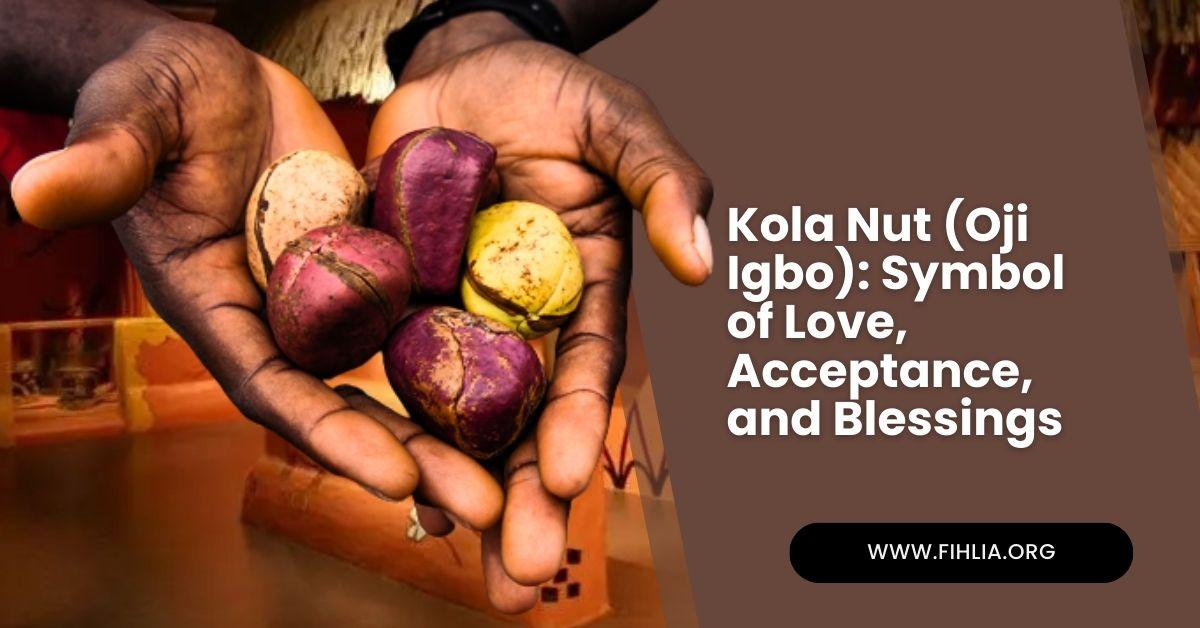In the heart of Igbo culture, nestled amid rich traditions and deep-rooted customs, lies the humble yet revered Kola nut, known locally as “Oji Igbo.” This small, unassuming nut holds a sacred significance, embodying the values of love, acceptance, and blessings within the Igbo community. Let’s embark on a journey to uncover the cultural tapestry woven around the Kola nut and its pivotal role in Igbo society.
The Ritual of Welcome: Kola Nut as a Symbolic Gesture
Kola nut plays a central role in the tradition of welcoming guests, whether it be in the home of a traditionalist or at significant events. It serves as a symbol of warm hospitality and a heartfelt expression of acceptance. The presentation of Kola nut is a ritualistic affair, infused with profound meaning and cultural significance.
Upon the arrival of guests, the Kola nut is blessed with incantations, invoking the favor of the gods or God, as per religious beliefs. It is believed that the Kola nut understands only one language: Igbo. Therefore, the incantations and blessings that follow the breaking of the nut must be spoken in the Igbo language.
The Ritual Unfolds: Acknowledgment and Blessings
The eldest among the guests or representatives typically acknowledges the presentation by briefly touching the plate containing the Kola nut with his right hand. This symbolic gesture signifies acceptance and gratitude. Subsequently, the Kola nut plate is shown to less senior members of the gathering, ensuring that each member takes a glimpse.
The host then receives the plate from the visitor(s) and selects one of the Kola nuts. He offers it to the guest, saying, “Öjï rue ulo, O kwue ebe O si bia,” which translates to, “When the Kola nut reaches home, it will tell where it came from.” This act reinforces the connection between the guest and the host’s family.
The Blessing: A Sacred Act
The blessing of the Kola nut is a profound moment in the ritual. It is typically performed by the oldest man among the audience. Holding one of the nuts in his right hand, he utters a blessing, incantation, or prayer in the Igbo language. These utterances are often rich with proverbs and idiomatic expressions, encapsulating the essence of Igbo culture.
For instance, the blessing may include phrases like, “Onye wetara oji, wetara ndu” (He who brings Kola nut, brought life) or “Ihe obula dï mma onye n’achö, ö ga-enweta ya” (Your thoughts of good will be granted you). These blessings not only seek favor but also convey wishes for a prosperous and harmonious life.
Breaking of the Kola Nut: An Art of Prosperity
The Kola nut is then broken, traditionally with the hands or a knife, and passed on to a younger male among the gathering. This individual further divides the Kola nut into small parts and distributes them to all present. This act of sharing symbolizes unity and reinforces the sense of togetherness among the community.
The Significance of Division: Prosperity and Omens
In Igbo culture, the number of divisions in the Kola nut carries great significance. The more divisions, the greater the prosperity it is believed to bestow upon the presenter and the guests. A Kola nut that yields only two parts is seen as a “bad omen” and may be associated with sinister motives, leading to avoidance of such nuts.
Purple or reddish-colored Kola nuts and cola acuminate are preferred over their greyish counterpart, cola nitida, as the latter often breaks into twos. Kola nuts that break into four parts are symbolic of the four market days of the Igbo week (Eke, Orie, Afor, and Nkwor) and are associated with prosperity. If a Kola nut breaks into five or more parts, it signifies even greater prosperity, sometimes warranting a separate celebration or rituals to commemorate the good omen it represents.
Kola Nut Etiquette: Tradition Preserved
Kola nut must be presented with both hands simultaneously, emphasizing respect and tradition. It’s important to note that only men can present and bless Kola nuts. Even among women, the youngest man, regardless of age, assumes the responsibility of breaking the nut. The act of climbing and plucking Kola nuts from the Kola tree is also traditionally reserved for men.
Conclusion: The Unbroken Bond of Kola Nut
In Igbo culture, the Kola nut is more than just a humble nut; it is a symbol of love, acceptance, and blessings. It bridges the gap between host and guest, uniting them in a sacred bond of community and tradition. The act of sharing Kola nut is a testament to the enduring essence of Igbo culture, where hospitality and cultural heritage are intricately woven together in the spirit of unity and goodwill.

